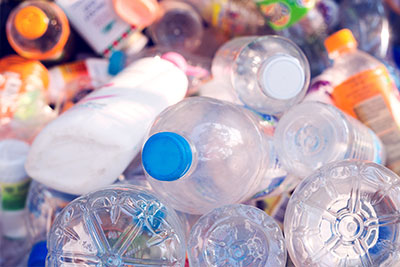It poisons and injures wildlife, disrupts human hormones, litters our landscapes, clogs our waste streams and plagues us in landfill. With plastic now threatening the very survival of our planet, could it be that our insatiable appetite for convenience is deadly? What can we do? Housing Association Magazine Editor Joe Bradbury investigates:
Although the world has only been mass-producing plastics for six decades, plastic production has accelerated so rapidly that it has created 8.3 billion metric tons — most of it in disposable products that end up as pollution. A staggering 91% of plastic isn't recycled, which, considering that it can take more than 400 years to degrade, is frightening. Every piece of plastic that has ever been made still exists in the world today.
Regardless of your political stance, pollution is the most meaningful topic of our age. It’s a shared burden; and man must evolve out of the plastic age for there to be any hope for humanity long-term.
With this in mind, we take a look at what one housing association in the West Midlands is doing to play its part in this essential shift in thought.
Plastic-free housing
Last summer, Accord Housing Association announced that it will build 12 homes minimising the use of plastic during the construction process. This means the organisation will use alternatives when it comes to fitting the kitchens, bathrooms and windows, as well as reducing the amount of plastic used in building materials.
According to its website, Accord believes this will be the first project of its kind in the UK, where a housing association is looking to minimise the use of plastic in house-building.
The houses will be built by Accord’s offsite manufacturing facility LoCaL Homes, which uses the latest modern methods of construction to manufacture high quality, super energy-efficient houses.
Carl Taylor, Assistant Director of New Businesses at Accord, said: “We believe this type of development hasn’t been done at scale before – there have been a few one-off attempts, but nobody has really looked at how we could produce mainstream houses with all the amenities without using plastic.
“We particularly want to remove the plastic from the kitchens and the bathrooms, because even though a house can last for a hundred years or more, the average kitchen and bathroom is changed every few years and we are keen to avoid generating plastic waste. This trans-European project will enable us to work with our European partners to identify plastic-free building products. We haven’t yet got a plastic-free solution to the electrics for instance, but we will be challenging people in the building products manufacturing industry to help us find solutions.”
Leading on change in the building sector
The project is part of the CHARM partnership (Circular Housing Asset Renovation & Management) funded by Interreg European Funding. It is part of a partnership which is made up of representatives from four countries; Belgium, France, the Netherlands and the UK. Each country has been given a different project to lead on, which aims to promote a circular economy in the housing construction sector.
Alan Yates, Deputy Chief Executive at Accord, added: “Our closed timber-framed houses have allowed us to build on low-carbon housing development and we have developed technology to build – now it is about taking that technology a step forward to reduce the use of materials that are not good for the environment both during manufacture and construction and for years to come. This project will change how we manufacture our homes forever.
"We are increasingly hearing about how single-use plastic waste is having an impact on the world’s environment: from build-up in the oceans, to landfill and we hope that by building houses with a new range of plastic-free components we can play our part to minimise the impact on the environment.”
According to the EU policy advisers Interreg, who launched project CHARM, Circular Housing Asset Renovation & Management, in 2018, the building sector is responsible for more than 60% of resource use in Europe, with more than 30-50% of material use taking place in the housing construction sector.
Despite the recycling efforts of local authorities and recycled plastics manufacturers, it is estimated that 10% of all plastic ends up in the ocean.
It's clear that more needs to be done if the construction industry is to reduce its plastic consumption and play its part in saving the planet.
For more articles please see our latest news section.
- Log in to post comments














